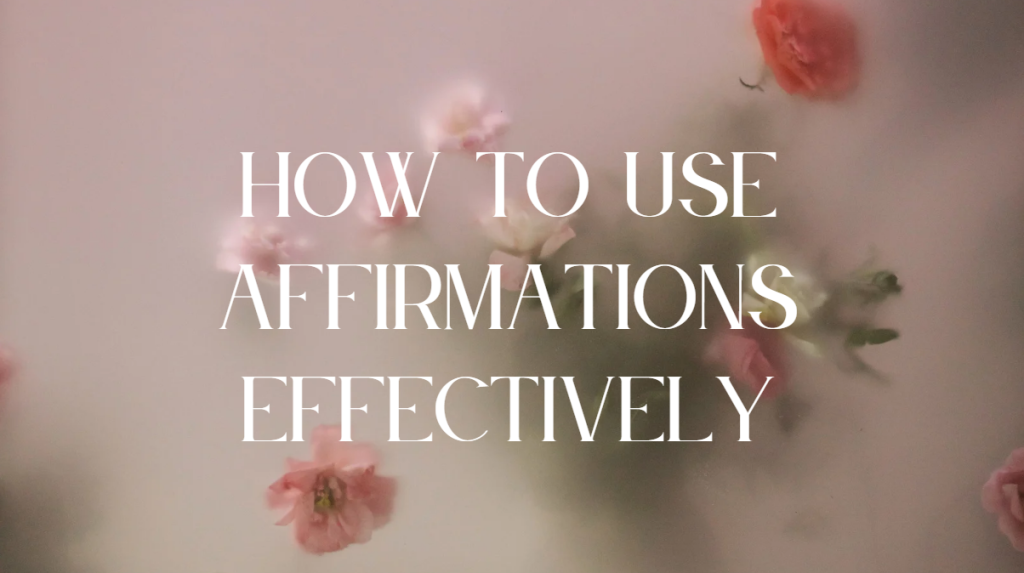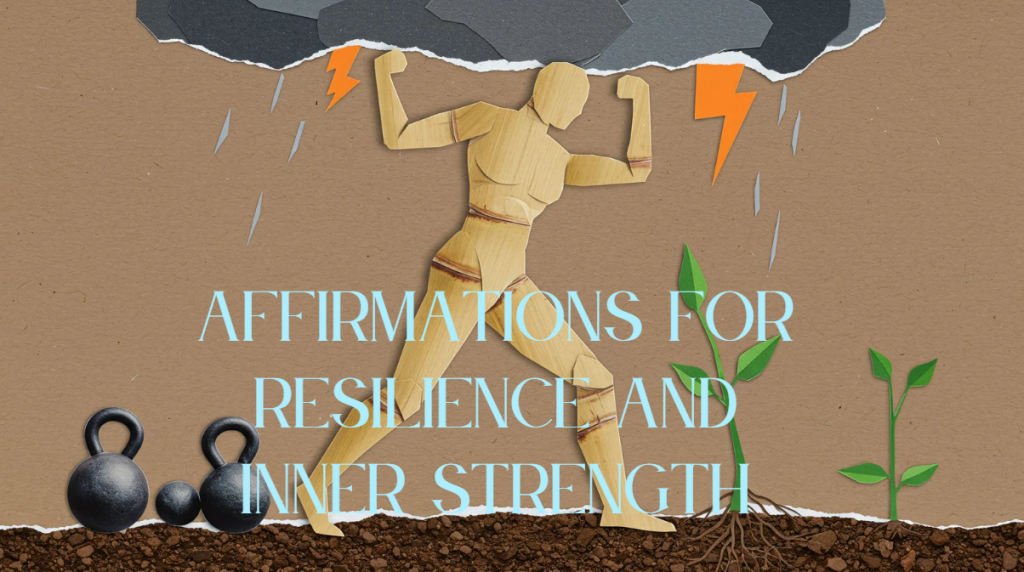Depression is more than feeling sad—it can impact every area of your life, from how you see yourself to how you connect with others. When you’re struggling, even small daily tasks can feel overwhelming, and negative thoughts may take over. In those moments, it’s easy to forget that healing is possible and that you have the strength to move forward.
This is where an affirmation for depression can help. Affirmations are positive statements you repeat to yourself, silently or aloud, to encourage healthier thought patterns, build self-compassion, and strengthen resilience. While an affirmation for depression is not a substitute for therapy or medical treatment, it can be a supportive complement to professional care, offering a simple tool to challenge negativity and nurture hope.
Research shows that repetitive, positive self-talk can influence neural pathways, gradually promoting more balanced and constructive thought patterns. This article provides 45 affirmation for depression, categorized to target self-worth, hope, emotional balance, and inner strength, along with tips on how to integrate them into your daily life.
Understanding Depression and Self-Talk
Depression is a complex mental health condition characterized by persistent sadness, low energy, difficulty concentrating, sleep changes, and diminished interest in previously enjoyable activities. It is often accompanied by a negative internal dialogue—the thoughts you tell yourself about your worth, abilities, and future. This self-talk can reinforce feelings of hopelessness and deepen depressive symptoms.
Affirmations work by interrupting these negative thought loops. When practiced consistently, positive statements can retrain the brain to focus on possibilities rather than limitations. Neuroplasticity—the brain’s ability to form new neural connections—means that repeated positive messaging can gradually replace self-critical thoughts with supportive ones.
Understanding this connection between thoughts and emotions is crucial. Affirmations help you create mental “anchors” that counteract negativity, remind you of your value, and cultivate hope. They are tools to gently guide your mind toward balance and resilience.
How to Use Affirmations Effectively

To get the most benefit from affirmations, it’s important to use them intentionally and consistently. Here’s how:
- Choose affirmations that feel believable. Start with statements that resonate with your current reality. If “I am completely happy” feels untrue, begin with “I am open to moments of peace today.”
- Repeat daily. Consistency is key. Morning and evening are ideal, but you can also repeat affirmations during moments of stress or sadness.
- Combine with mindfulness or journaling. Say your affirmations while taking deep breaths, reflecting in a journal, or practicing meditation to enhance their impact.
- Use first-person, present tense. Statements like “I am worthy of love” are more effective than “I will be worthy of love someday.”
- Be patient and gentle with yourself. Affirmations support progress; they are not instant cures.
Common mistakes to avoid: forcing statements that feel completely false or relying solely on affirmations without professional support when experiencing severe depression. Affirmations are best used as a complement to therapy, self-care, and other treatment methods.
Affirmation for Depression: for Self-Worth (10 affirmations)
Low self-esteem and self-critical thoughts are common in depression. Affirmations for self-worth can remind you of your value and reinforce self-compassion.
- I am worthy of love and respect.
- I deserve kindness, including from myself.
- My feelings are valid.
- I am enough as I am today.
- I honor my strengths and acknowledge my efforts.
- I am capable of growth and healing.
- I release self-judgment.
- I am proud of myself for small victories.
- I accept myself fully in this moment.
- I am deserving of happiness.
How to use them: Write one affirmation per day in a journal or sticky note and reflect on it throughout the day. Repetition helps the brain internalize these positive messages, gradually counteracting self-critical patterns.
Affirmation for Depression: for Hope and Motivation (10 affirmations)

Depression often steals your sense of hope, making it hard to envision a better future. Affirmations for hope and motivation remind you that positive change is possible, even in small steps.
- Today is a new opportunity to care for myself.
- I can handle challenges one step at a time.
- Small progress is still progress.
- I am open to positive change.
- My future holds possibilities.
- I trust in my ability to overcome struggles.
- I have survived hard times before and I can do it again.
- I choose hope, even when it’s difficult.
- Every effort I make matters.
- I allow myself to envision better days.
Practical tip: Pair these affirmations with actionable steps, such as setting a small goal for the day. This combination of positive self-talk and tangible progress reinforces hope and motivation.
Affirmation for Depression: for Emotional Balance (10 affirmations)
Depression can create intense emotional swings and overwhelm. Affirmations for emotional balance help you observe emotions without being controlled by them and cultivate calm.
- I accept all my emotions without judgment.
- It is okay to feel sad and to take time to heal.
- I am patient with myself during difficult moments.
- My emotions are signals, not commands.
- I release tension with each breath.
- I am learning to manage my feelings gently.
- I am not my depression; I am more than my struggles.
- I allow myself to experience calm moments each day.
- I am grounded and centered, even in storms.
- I can observe my thoughts without being controlled by them.
Pro tip: Pair affirmations with mindfulness exercises, like breathing deeply or noticing sensations in your body. This helps anchor your mind and create space between yourself and overwhelming emotions.
Affirmation for Depression: for Resilience and Inner Strength (10 affirmations)

Depression can make even the simplest tasks feel daunting. Affirmations for resilience help remind you of your inner strength and ability to navigate challenges.
- I have the inner strength to face today.
- Challenges are opportunities for growth.
- I trust my instincts and decisions.
- I am resilient, even when I feel weak.
- I can handle uncertainty with courage.
- I recover from setbacks with grace.
- I am stronger than I think.
- I believe in my ability to heal over time.
- I honor my perseverance.
- I choose strength, even in vulnerable moments.
Application tip: When facing setbacks, silently repeat one of these affirmations. Over time, they reinforce confidence and cultivate a mindset that can weather difficulties without self-criticism.
Affirmation for Depression: for Self-Compassion and Forgiveness (5 affirmations)
Forgiving yourself and showing compassion is crucial for managing depression. These affirmations support self-acceptance and reduce self-blame.
- I forgive myself for past mistakes.
- I treat myself with the same kindness I offer to others.
- I am gentle with myself when I am struggling.
- I deserve patience and understanding.
- I allow myself to let go of guilt and shame.
Tip: Use these affirmations when feelings of regret or guilt surface. Repeating them consistently can reduce the intensity of self-critical thoughts and foster emotional healing.
Integrating Affirmations into Daily Life

Affirmations are most effective when incorporated consistently into your routine. Here are practical strategies:
- Visual reminders: Place sticky notes on mirrors, doors, or computer screens.
- Phone reminders: Set alarms or notifications to repeat affirmations at certain times.
- Mirror practice: Speak affirmations aloud while looking in the mirror to reinforce self-recognition.
- Journaling: Write each affirmation and reflect on how it makes you feel.
- Combine with therapy or meditation: Affirmations complement cognitive behavioral therapy (CBT) and mindfulness practices, enhancing emotional regulation and mental resilience.
Consistency is key. Even when it feels awkward at first, repeating affirmations daily strengthens neural pathways associated with positive thinking, slowly shifting your mindset over time.
Conclusion
Affirmations are not a cure for depression, but they are a valuable tool for supporting healing, self-worth, and resilience. By consistently practicing affirmations, you can gently reframe negative thought patterns, nurture hope, and foster a compassionate relationship with yourself. Start small: pick a few affirmations from this list that resonate most with you. Repeat them daily, ideally combined with mindfulness, journaling, or professional guidance. Over time, these words can help reshape your inner dialogue, remind you of your inherent worth, and support your journey toward emotional balance.
If your depression is persistent or severe, seek support from a mental health professional—affirmations are most effective when combined with therapy, medication, or other evidence-based treatments. Stay Healthy! LLC encourages you to integrate affirmations into your daily routine while accessing the care you need. By doing so, you are taking meaningful steps toward reclaiming your life, one gentle word at a time. Remember, seeking help is a sign of strength, not weakness. Combining professional guidance with consistent self-care practices like affirmations can empower you to move toward emotional healing.











